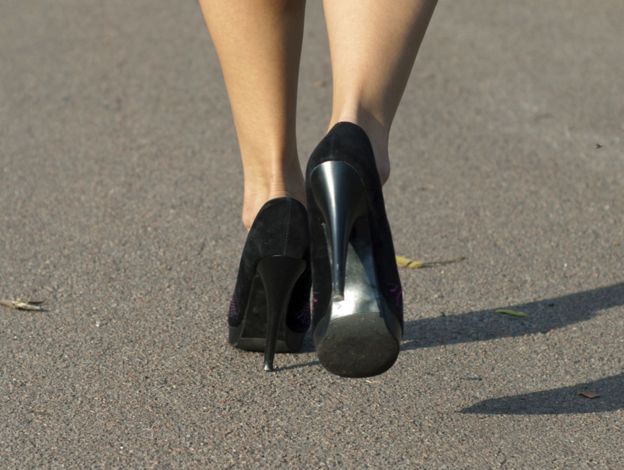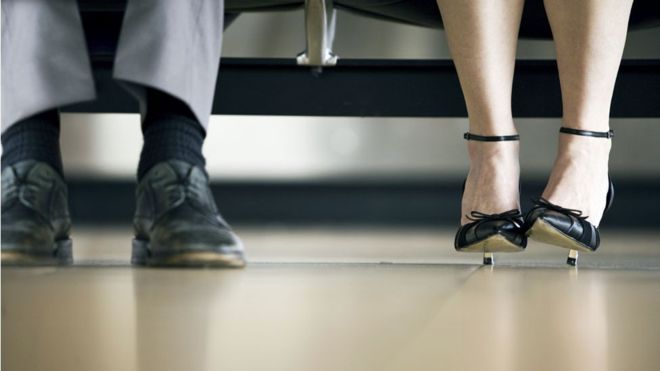Not being familiar with the venue, I allow bags of time to get lost and arrive ridiculously early. The trainer gets me a coffee and seats me at a table with three other early-birds. The woman to my right is in the admin section at Cambridge, the man opposite is head of plumbing at a Welsh college, and the man to my left teaches media psychology somewhere in the Midlands.
I`ve never heard of media psychology and ask a few questions about it. The man`s halfway through telling me about his work, when the trainer interrupts. The course is about to begin. To get to know one another, we`re to interview the person sitting next to us, then introduce them to the whole group.
I`m put into a pair with the media psychologist and realise I don`t know his name. He can see my name-badge, but I can`t see his. I point out my difficulty - glad for an excuse to mention my disability - and he tells me his name is "Nina".
Nina? I must have misheard. Maybe it`s short for some male name I don`t know?
I decide my confusion doesn`t matter and listen on. Nina`s describing the formation of an LGBT group at work, and this leads us into a discussion about gender identity.
So, maybe that`s it, maybe Nina`s transgender. Although, just because a person`s interested in LGBT issues, doesn`t mean they`re LGBT. Maybe, I`m just making a lazy assumption, to dispel my discomfort. Because, in truth, I`m starting to feel uncomfortable. As a blind person, I`m used to dealing with a lot of additional uncertainty, but this not knowing if I`m talking to a man or a woman is something new and disconcerting.

I listen hard to Nina`s voice. There`s something soft and tentative about it - but the pitch is unmistakeably male.
Interviews done, I sit back and listen as people on the far side of the room start introducing their partners. I mentally review what I`ve found out about Nina, feeling increasingly nervous as my turn approaches. I tell myself that any concerns I have about Nina`s gender are a thing of little consequence. The whole point of the day is equality and diversity, and I shouldn`t get so hung-up trying to slot people into neat pigeon-holes.
And then, I`m struck by a horrifying thought. How am I going to get through more than a couple of sentences without committing myself to he or she, his or hers? I can`t keep saying, "Nina does this", "Nina does that". It would soon sound ridiculous. It`s no good thinking I can just float along in glorious uncertainty - this matter of pronouns will be my undoing!
It`s almost my turn and I`m in a state of near panic!
Just before it`s my time to speak, I lean across the table and ask Nina, "which pronoun do you prefer?"
"She", Nina replies very nonchalantly.
Later, over mid-morning coffee, Nina finds me. "I liked your question about pronouns", she says. "I`ve sometimes had that happen on the phone. I mean, people not being sure. But, let me tell you - if you could see me, you`d be in absolutely no doubt."
We both laugh and resume our conversation about our work and the course.
At the end of the afternoon, I ask if anyone`s walking back to the station and if I can take an arm. Nina offers and, as we exit the carpeted building onto the street, I immediately catch the click of her heels.
Neither of us expected this encounter, but, with a little honesty and humour, I think it`s turned out to be a valuable and thought-provoking experience for both of us.
















































